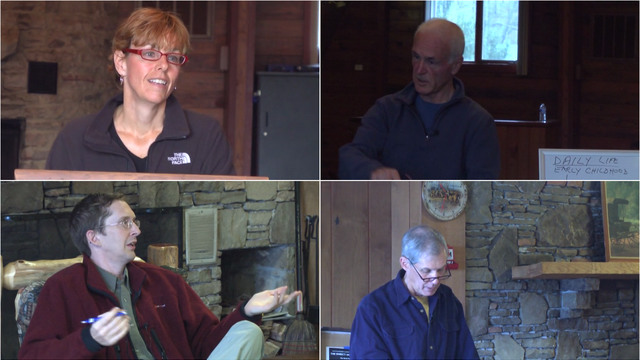March 2024 TAT Forum

This month’s contents include:
Convictions & Concerns: Changing Convictions, by Ben R.
TAT Foundation News: Including the calendar of 2024 TAT events and a listing of local group meetings organized by TAT members.
Humor
Inspiration & Irritation
Reader Commentary: How do you define “ego,” and how does (or did) it come into play on your path?
Founder’s Wisdom
A New Home for TAT update
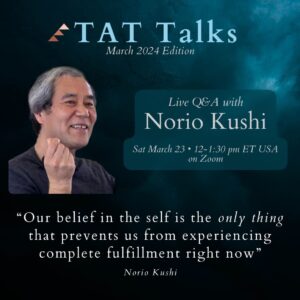
Saturday, March 23, 2024
More information and registration.

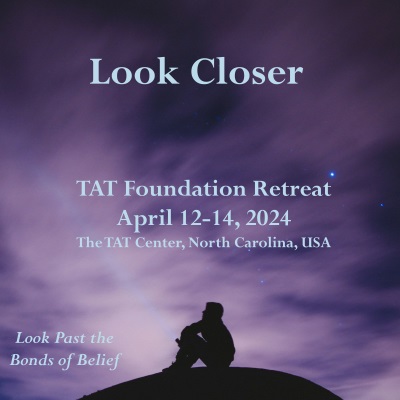
Friday-Sunday, April 12-14, 2024
More information and registration.


(As an Amazon Associate, TAT earns from qualifying purchases made through links on our website … or save this link to use.)
Convictions & Concerns
TAT members share their personal convictions and/or concerns

Changing Convictions
One question I’ve been mulling over recently is if there are any convictions that life experience has led me to let go of or develop. I can see there’s a shift in convictions, both let go of and adopted, from how I entered early adulthood to where I am now nearly entering middle-age, which I might label as a fading away of perfectionism.
For any number of reasons and combination of multiple factors, I entered adulthood with the conviction that there was a right way to be and do everything, and that my job was to learn that as best I could. If I was practicing a musical instrument, I believed there was a right way to go about it in order to be the best at it that I could. In relationships, I thought there was a right way to communicate, to respond, to handle my own feelings and the feelings of others. And spirituality was for me a way to try to determine the right way to see life itself.
There were a bunch of downsides to this outlook on life. One was in my relationships with others, in that I became frustrated and resentful when others seemed to act in the contrary direction to what I had come to believe was the right way. In my college-years Buddhist phase I genuinely thought that the world would be a great place if everyone would just be a Buddhist and therefore compassionate, mindful, nonviolent, and vegetarian. And as I began entering long-term relationships I genuinely thought that everything would run smoothly and perfectly if we just shared every thought and feeling openly while calmly using “I statements” and being compassionately curious with each other.
Read More
~ Thanks to Ben R. Photo by Nataliya Vaitkevich on pexels.com. Comments or questions? Please email reader commentary to the TAT Forum.


TAT Foundation News
It’s all about “ladder work” – helping and being helped
Richard Rose, the founder of the TAT Foundation, spent his life searching for the Truth, finding it, and helping others to find their Way. Although not well known to the public, he touched the lives of thousands of spiritual seekers through his books and lectures and through personal contacts with local study groups that continue to work with his teachings today. He felt strongly that helping others generates help for ourselves as well in our climb up the ladder to the golden find beyond the mind.

Call To Action For TAT Forum Reader
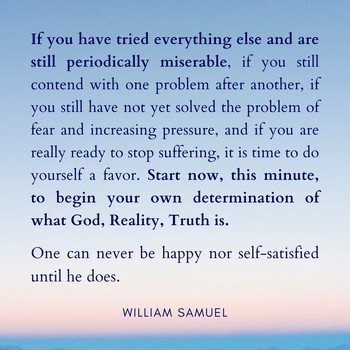
With the intention of increasing awareness of TAT’s meetings, books, and the Forum among younger serious seekers, and to increase awareness of ways to approach the search for self-definition, the TAT Foundation is now on Instagram.
You can help! A volunteer is producing shareable text-quote and video content of Richard Rose and TAT-adjacent teachers. We need your suggestions for short, provocative 1-3 sentence quotes or 1 minute or less video clips of people like Rose, Art Ticknor, Bob Fergeson, Tess Hughes, Bob Cergol, Bart Marshall, Shawn Nevins, Anima Pundeer, Norio Kushi, Paul Rezendes, Paul Constant, & other favorites. (An example here is selected by the TAT member who volunteers to oversee the Instagram account.)
Please send favorite inspiring/irritating quotes—from books you have by those authors, from the TAT Forum, or any other place—to TAT quotes. If you have favorite parts of longer videos (ex: from a talk at a past TAT meeting), please email a link to the video and a timestamp.
Thank you!

After the Absolute: The Inner Teachings of Richard Rose
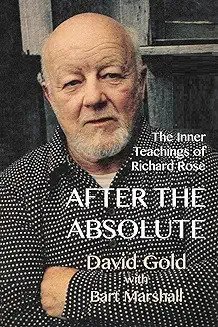
A transcript approved by the authors is now available, or purchase the book on Amazon.
Richard Rose was an unlikely Zen master…. David Gold was an unlikely student….
“After the Absolute is one of the most gripping, intensely interesting, dramatic, and indeed romantic-heroic-mythic, yet poignantly human accounts I have ever read….” ~ Joseph Chilton Pearce, author of The Crack in the Cosmic Egg.

TAT Foundation Press’s latest publications
Message In A Bottle: Reflections On The Spiritual Path
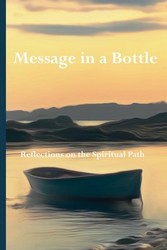
Message In A Bottle: Reflections On The Spiritual Path relates the ongoing struggles and triumphs of fellow seekers. This collection of insightful essays serves as a testament to resilience, patience, and unwavering determination in the pursuit of inner truth and understanding. It is now available in print and Kindle versions as well as TAT Press’s first audiobook (individual purchase or membership) on Amazon.com.
=> READ A REVIEW by Gus R.:
Please add your review to the Amazon listing. It makes a difference!
*
Shades of Real: Poems in a World of Wonder
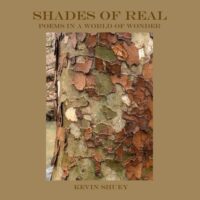
Shades of Real by Kevin Shuey is now available in print and Kindle versions on Amazon.com. Discover a captivating compilation of poems that gracefully ride the waves of each fleeting moment, inviting readers into moments of tranquil excitement and resounding quietude.
Within these pages lie enigmatic verses that lead us to the very heart of our true selves, unraveling the profound mysteries that define us.
Please add your review to the Amazon listing. It makes a difference!
*
Pouring Concrete: A Zen Path to the Kingdom of God – Expanded Edition
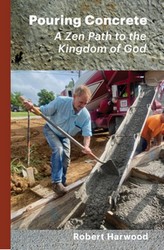
Pouring Concrete by Bob Harwood is now available in print and Kindle versions on Amazon.com. Individuals who approach this book with receptivity and a readiness to scrutinize their culturally ingrained notions and convictions regarding the fundamental fabric of existence are likely to experience a multitude of profound insights. By embracing the diverse recommendations within these pages, one may unlock a series of existential revelations that have the potential to reshape their perspective on reality.
Please add your review to the Amazon listing. It makes a difference!

|
Random rotation of |

2024 TAT Meeting Calendar
January TAT Talks online event: January 27, 2024 at 12 PM ET
February Virtual Gathering: Saturday, February 24, 2024
** April Gathering: Friday evening through Sunday noon, April 12-14, 2024 **
June Gathering: Friday evening through Sunday noon, June 14-16, 2024
August Gathering: Friday evening through Sunday noon, August 16-18, 2024
November Gathering: Friday evening through Sunday noon, November 8-10, 2024
Comments or questions? Please email TAT Foundation events.



TAT’s YouTube Channel
Have you seen the TAT Foundation’s YouTube channel? Subscribe now for spiritual inspiration (and irritation)!
Volunteers have been updating the channel with hours of new content! They’ve also curated some great playlists of talks by Richard Rose, teacher talks from recent & not so recent TAT meetings, episodes of the Journals of Spiritual Discovery podcast, and other great TAT related videos from around the internet.
Featuring: Richard Rose, Bob Cergol, Shawn Nevins, Bob Fergeson, Mike Conners, Anima Pundeer, Norio Kushi, Paul Rezendes, Bob Harwood, Tess Hughes, Art Ticknor, Shawn Pethel, Tyler Matthew and other speakers.
This month’s video is from a June 2022 TAT presentation by Bob Cergol:

Local Group News
(Groups with recently updated information are listed first. Click the “read more” link to see a complete listing of local groups. )

 Update for the Online Self-Inquiry Book Club:
Update for the Online Self-Inquiry Book Club:
> The next book is Jim Burns’s At Home With the Inner Self ( Kindle and paperback or html), meeting first and third Sundays from 2:00 PM ET–3:30 PM ET:
– Sun, Mar. 3: Discussing the Forward, Intro, and The Success Mode.
– Sun, Mar. 17: Discussing the Society and the Mental Illness chapters.
For more information on book club participation, see the meeting website (link above).
TAT Forum readers are welcome to drop in any time (invitation to Sunday meetings).

 Update from the Pittsburgh, PA self-inquiry group:
Update from the Pittsburgh, PA self-inquiry group:
> In-person bi-weekly meetings: Dobrá Tea Pittsburgh, 1937 Murray Ave, Squirrel Hill
> Online group confrontation and individual contributions every Wed, 8:00 pm ET via Zoom.
> Use the e-mail link below for invitations to all meetings and to receive internal email announcements.
– Sun, Mar 3: Online Dan G’s Book Review 2PM: At Home with the Inner Self.
– Wed, Mar 6: Online meeting. Gloria will present and monitor.
– Mon, Mar 11: In-person Meeting Squirrel Hill, 2-4PM: Gloria will host (email for details).
– Wed, Mar 13: Online meeting. Lenny will present and monitor.
– Sun, Mar 17: Online Dan G’s Book Review 2PM: At Home with the Inner Self.
– Wed, Mar 20: Online meeting: “Defiance and Humility: Two Spiritual Paths?”
– Sun, Mar 24: Online meeting with the Irish group 2-4 PM ET.
– Mon, Mar 25: In-person Meeting Squirrel Hill, 7-9PM: Dean will host (email for details).
– Wed, Mar 27: Online meeting: Gloria will present and monitor.
> All Forum subscribers are welcome to join us.
Email to receive weekly topics with preparatory notes and Zoom invitations. Current events are listed on Meetup as Pittsburgh Self-inquiry Group and on www.pghsig.org.


Members-Only Area
A password-protected section of the website is available for TAT members. (Note that there’s an occasional glitch that, when you try to link to the members-only area or a sections within it, you’ll get a page-not-found error. If you try the link a second time, it should work.) Contents include:
- How you can help TAT and fellow seekers,
- Audio recordings of selected sessions from 2008–2019 in-person meetings and from February and November 2021 Zoom meetings,
- Resources and ideas for those planning a group spiritual retreats,
- Photographs of TAT meeting facilities, the Richard Rose grave site, a rare 1979 photo, and aerial photos of the Rose farm,
- Presenters’ talk notes from April TAT meetings in 2005–2007, and
- TAT News Letters from 1996–2013 and Annual Retrospectives from 1973 thru 2011. The Retrospectives from 1973–1985 were written by Richard Rose and are replete with ideas on the workings of a spiritual group—rich historical content.
- TAT policies, TAT business meeting notes, and other information.
Latest recordings:
TAT’s November 2021 online gathering, titled What Do You Really, Really Want From Life?: 3.5 hours of selected sessions.
In Thought, Word and Deed : 2.5 hours of selected sessions.
TAT’s August 2019 Workshop was titled Beyond Mindfulness: Meditation and the Path Within and included three guest speakers who each led separate workshops. The following audio recordings are now available in the members-only website area:
- “Mindfulness. Is it just another spiritual buzzword?” with Bob Cergol,
- “The Path of Direct Sensory Perception” with Bob Harwood, and
- “The Art of Mindfulness is the Passion for Truth” with Paul Rezendes.
TAT’s June 2019 Spiritual Retreat Weekend was titled Between You and the Infinite. The following audio recordings are now available in the members-only website area:
- “Coming Home (aka The End of Seeking)” by Don Oakley, and
- “What’s in the Way?” by Eshwar Segobind.
TAT’s April 2019 Spiritual Retreat Weekend was titled Once in a Lifetime is Now. The following audio recordings are now available in the members-only website area:
- “Recognizing the Human Dilemma” by Norio Kushi,
- “Strategies for Self-Realization” by Bart Marshall,
- Untitled session by Paul Hedderman, and
- “A Session in the Now” by Paul Rezendes.
Please us if you have questions. (Look here for info on TAT membership.)

Amazon and eBay
Let your Amazon purchases and eBay sales raise money for TAT!
As an Amazon Associate, TAT earns from qualifying purchases made through the above link or other links on our website. Click on the link and bookmark it in your browser for ease of use.
TAT has registered with the eBay Giving Works program. You can list an item there and select TAT to receive a portion of your sale. Or if you use the link and donate 100% of the proceeds to TAT, you won’t pay any seller fees when an item sells and eBay will transfer all the funds to TAT for you. Check out our Giving Works page on eBay. Click on the “For sellers” link on the left side of that page for details.

Downloadable/rental versions of the Mister Rose video and of April TAT talks Remembering Your True Desire:
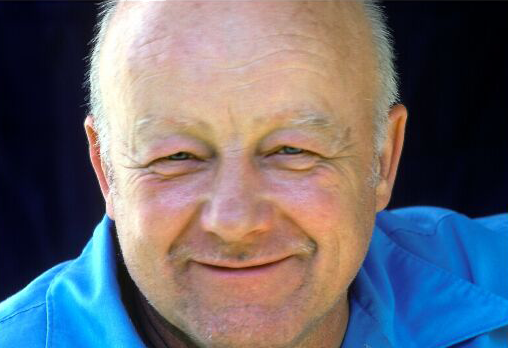

Your Contributions to TAT News
TAT founder Richard Rose believed that working with others accelerates our retreat from untruth. He also felt that such efforts were most effective when applied with discernment, meaning working with others on the rungs of the ladder closest to our own. The TAT News section is for TAT members to communicate about work they’ve been doing with or for other members and friends. Please your “ladder work” news.


Humor {(h)yo͞omər}
“One thing you must be able to do in the midst
of any experience is laugh. And experience
should show you that it isn’t real, that it’s a
movie. Life doesn’t take you seriously, so why
take it seriously.” ~ Richard Rose, Carillon

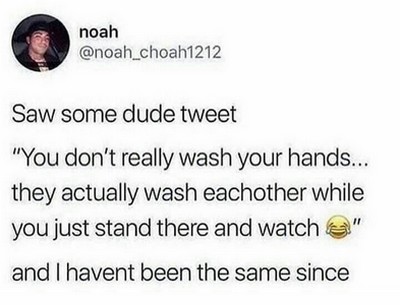
~ Thanks to Michael R., who spotted this on Twitter (when it was still Twitter).

Sniglets II
pregret – To know what you’re about to do is wrong, wrong, wrong while also knowing you will do it anyway.
sinergy – When two bad acts feel as good as three. [vs. synergy]
unlighten – To learn something that makes you dumber.
youniverse – The immediate environment of the terminal narcissist.
*
~ Thanks to Paul Constant, who came across them in the Reader’s Digest. Wikipedia defines a sniglet as: “an often humorous word made up to describe something for which no dictionary word exists. Introduced in the 1980s TV comedy series Not Necessarily the News, sniglets were generated and published in significant number, along with submissions by fans, in several books by Rich Hall, beginning with his Sniglets, Sniglets for Kids, and More Sniglets in the mid-1980s. It has been defined as “any word that doesn’t exist in the dictionary but should.” Reader’s Digest refers to them as “wonderfuls.”

Hey, How’ve You Been?
View this post on Instagram
Thanks to Brett S. for this Instagram video.


Inspiration & Irritation
Irritation moves us; inspiration provides a direction

The Greatest Mystery in the Universe?

“Consciousness, rather than spacetime and physical objects, is fundamental.”
Q: Is the cosmos here when you’re sleeping?
Q: Do you wake up into spacetime, or does consciousness arise first?
“Once we let go of our massively intuitive but massively false assumption about the nature of reality, it opens up new ways to think about life’s greatest mystery.”
Q: What is life’s greatest mystery?

Direct-Pointing Movements

The February Forum has a brief piece on Liberation Unleashed, along with two pertinent questions you pose to readers. Since I’ve written in the past to a couple of seeker friends (both longtime TAT members) on the topic in question, and the writing does address your questions**, I thought I’d share that with you.
**The tl;dr [too long; didn’t read] version of my longer response is:
Q: Do you feel that seeing analytically or even intuitively that your beliefs about being a limited self are a construct of the mind will liberate you from all limitation?
I think that rarely happens. At most, it’s usually a preliminary insight on the path of deconstructive self-inquiry.
Q: Do you feel that knowing with complete certainty what you truly are is impossible (Self-Realization vs. no self)?
“Self-Realization” (or whatever else you want to call it) is most definitely possible, and it doesn’t preclude or contradict the “no self” aspect.
*
‘I’ is not just a thought, but seeing this won’t necessarily end the search
Some critical thoughts on “direct pointing” movements like Liberation Unleashed
The following passages are from my side of older email exchanges with two friends, one of whom was an ardent seeker who’d been working with a ‘guide’ in a popular direct-pointing movement known as Liberation Unleashed (LU), about which I had reservations. In an earlier email to this same friend, I’d explained my reservations thus:
Direct pointing is a way to be Socratically guided to the insight that there is nothing solid or locatable behind the sense of self. But this insight, while always valuable because true, can transpire on any of various levels without undoing the deeper conditioning that keeps the dilemma and suffering in place. The advocates and practitioners of the contemporary direct-pointing movement (Liberation Unleashed and Ruthless Truth, mainly) seem not to understand that one can quite clearly see that there is ‘no self’—no independent agent behind the eyes or behind the ‘I’—while still remaining subject to the deeper reflexive tendencies which belief in such an agent supported over a lifetime.
The next excerpt outlines some of the underpinnings of the above assertion:

~ Thanks to Peter Lisa. Photo by Itai Aarons on Unsplash


~ Thanks to Brett S, who wrote: “The first 2:30 of this video reminds me a little of Richard Rose supposedly using ‘Between-ness’ to win at poker games, but only because he didn’t care if he won and didn’t get greedy.”

Shocking Truth of All NDEs

9:03
“… You’ve got to be very careful in how you evaluate things like this. I mean, it’s not easy to give evidence or proof of life after death. We don’t even know what we’re talking about yet. But, but I’m not trying to talk this subject down because I say that we’re now on the verge of whole new developments in it, but it’s not gonna come from parapsychology, which is pseudoscience.…”
13:44
“Where I have come to this in reflection, Alex, is that ‘What is your personal identity?’ And that’s a big philosophical question. Plato said it was the immaterial. So Locke said it was our memories. David Hume said, I can’t find anything in there other than the temporary impressions.”
19:10
“Yes, it’s insanity to believe all of [this life experience] is real. But that’s what we do with our lives … when you’re so focused on the screen. What you need to be focused on is where the light is coming from.”
![]()
Please your thoughts on the above items.


Reader Commentary
Encouraging interactive readership among TAT members and friends
A reader wrote that what would make the Forum more interesting would be:
Hearing from people who are searching—and have questions instead of those providing endless advice and “answers.” What challenges they are facing. What their doubts and questions are. How they perceive their path is going. What they are doing in their lives. Where they think they will end up, etc., etc.
Can you help make the Forum more interesting?

The Reader Commentary question for the March TAT Forum:
How do you define “ego,” and how does (or did) it come into play on your path?
Thanks to Jeroen V. for this month’s question. Responses follow:

From Leena S:
Ego is not my enemy. It is essential for preservation of individuality and identity for my psyche, based upon experiences, conditioning and memories collected from a lifetime. The last time I walked into a room full of people, I needed an identity. My spouse, boss and even cat need something to identify me by. I am indeed happy to know that something keeps an identity intact that’s nice and not too offensive, handy when needed. Rose once said that people who feel guilty, or are doing nothing else, look for an enemy as a cause to do battle with. “Kill the ego!” is a really big red flag when waved by seekers or Finders. I don’t give credibility to an ego but to note changes to the identity as my attention shifts more and more to what may lie beyond or anterior to the ego-identity-personality dimension. I watch ego activity, and well-enough is left alone as long as ego doesn’t attempt to qualify where my spiritual intentions and aspirations lead. More recently, ego’s activities seem to have morphed as attention goes elsewhere. For example, the Christian “Seven Deadly Sins” seem to become much less pronounced in both behavior and feelings with others, as is the general reduction in negative emotions as an expenditure of energy in increasingly useless sentiments and imagination.
From Matt M:
I would define the ego as the voice in my head, a mental construct that emerges from and is perpetuated by social conditioning, personal experiences, and the human need to maintain a cohesive self-identity. This construct operates to protect and enhance its perceived self-image, often by embellishing strengths and hiding vulnerabilities.
On my path, the ego has been both a teacher and an obstacle. It blatantly revealed itself one day during a profound interaction with a particular person that transcended ordinary conversation. During dialogue, a state emerged where thought ceased, leaving a pure flow of connection. However, almost immediately after this experience, the ego reasserted itself, narrowing my focus to personal desires and past insecurities. This moment was pivotal; it was as though a light had been turned on, illuminating the ego’s mechanism of constructing reality based on past hurts and projected needs, particularly highlighting a teenage experience of rejection that shaped my ego’s defensive strategies.
This realization marked a turning point in the relationship with what I take to be myself. It seemed evident that the ego was not the totality of my being but a limited aspect that could be observed and, with practice, transcended. The voice hasn’t vanished; rather, my engagement with it transformed. It still attempts to assert its narrative, but now it does so without my automatic endorsement. This shift has allowed for a greater ability to live in an impromptu fashion, making it easier to discern the ego’s influence and choose responses more aligned with a truer self. Life seems to have more and more moments of authentic spontaneity.
From Anima Pundeer:
I realized that ego is not pride, personality, low or high self-esteem, or how I act in life. I narrowed it down to the feeling of a special, unique, separate ‘me’ with the only motive to keep its self-centricity intact.
I had heard that ego keeps us from knowing our Real Self. This statement never really resonated with me. It was only after Pulyan’s letters that we were reading for one of the email groups that it occurred to me that no matter what I do in terms of spiritual practices, unless this ‘I’, the ego, that I took myself to be, remains, I’ll never find ‘Permanent’ end to my suffering.
You know how we can keep listening to the same thing millions of times and never really hear it? And then, in one delicate moment, the same words become absolutely clear. Pulyan’s statement that the “penny hides the Sun” made me realize that the spiritual path is to get myself, the penny, out of the way.
I think the ultimate survival game of the ego is to want to go beyond life and death, to find Moksha (liberation). For that to happen, it agrees to sacrifice its own head.
The question that came up was, ‘I’ the ego, want enlightenment and to maintain its centricity, so why should I, the ego, seek and gratify the ego? Twisted!! I thought, no more ego gratification … so no being a seeker. The seeking had become more internalized by then. The vector was set, I guess.
Ego does not go anywhere. It just stops being the center. The love for Truth makes you want to know Truth for its own sake. The seeking is the purification of the desire for Truth.
From Patrick K:
My issue right now with ego is that I am forcing things. My intellectual ego is pushy. David Gold has a quote from Richard Rose in After the Absolute: The Inner Teachings of Richard Rose [free transcript], paraphrased: “When you force things, you end up feeding the forces of adversity that work against you”. So I keep stumbling on this. “Beingness” seems to be the opposite of my “doer driven intellectual ego”. A really irritating guy turned up at our online meeting lately and another guy commented about him as being a “want-to-be-expert”. I cringed because I could see myself in this other guy, only the other guy had his dial turned up a couple more notches on this trait than me. Am I becoming just a better “word-slinger”? Am I affecting any real change in being? It is like I only have one mode in which to work and I use it and abuse it to death, but can’t change course because I haven’t found any deeper ways or better ways. I have this drive to force my way of seeing things onto everyone else; I know it’s phoney but haven’t been able to reconcile that drive for some reason. I know I’m wrong but I’ve been wrong for so long now, I’ve no idea what’s right—that’s the kind of way it is. I pray for betweenness to descend upon me and patience from my fellow self-inquirers. I feel this is productive though because in one sense I daren’t proceed in this same vein, so there is a feeling that something has to give as I continue along my path.
From Vince L:
Basically, I define ego as being that which affirms one’s individuality. Ego consists of a vast complex of thoughts, feelings, desires, and fears which serve as survival mechanisms in the manifested world. I believe that having an ego is a good, positive, and necessary thing at an early developmental stage of a person’s life, as the affirmation of individuality motivates us to meet our basic survival needs of food, shelter, and clothing.
However, once these needs are met one may ask whether the ego continues to serve a positive purpose. Upon reflection we may ponder over our mortality and think about what happens to us after our death. Does ego survive after our physical death? Or better yet, what does survive? If you have reached this stage of your life and have an intense desire and longing for the answer, you may devote your life to a spiritual path.
Personally, I think I reached the stage I have described in the above paragraph. In a conscious way I have considered myself to be on a spiritual path for several decades now. Yet, I am still struggling with ego. I work as a substance abuse counselor and see how difficult it is for those in recovery to maintain sobriety. Regarding their struggles with addiction, I am reminded of what St. Paul said in the New Testament: “I do not understand what I do. For what I want to do I do not do, but what I hate to do.”
Ego at this stage of my life seems to me like an addiction, so in a certain way I can empathize with the struggles of my clients. For many decades I grappled with feelings of failure, deprivation, and inferiority, even though in the back of my mind I sensed that in the ultimate scheme of things these things were not Real. So why was I holding on to these feelings, and still do so to a lesser extent today? My guess is that I still want to affirm my individuality, and by doing so remain in the quandary that St. Paul described in the quote I mentioned.
From Mary Beth:
The ego is the play on my path and it is quite a ferocious little bugger. Ego, the thinking, judgment and resistance that keeps me chained. Decades have loosened those chains but little. Anyhow I am enjoying several of the meetup groups from TAT each week and so grateful for all I receive from them.
From Art Ticknor:
In its vanilla flavor, ego is the sense of self, I-amness.
As our human experience accumulates, the flavor becomes more complex … strawberry, mint chocolate chip, Rocky Road … concocted of beliefs we have about self and other. The flavors that stick around become states of mind that are very sticky.
Within a year or so after meeting Richard Rose and beginning down the path of conscious self-inquiry, I was visiting my parents and mentioned that I was seeing new things about myself. My mother asked for an example, and I told her that I was surprised to see that I had a passive mentality. Her response: Oh (i.e., that was so obvious to her).
Mr. Rose used to say that a person is either a fighter or a lover. I never saw myself as a fighter (although I loved to argue intellectually), but I didn’t think of myself as a lover, either. In retrospect, though, I can see my path as a bhakti path … not emotional, but I had fallen in love with the ideal of Truth.
From Brian M:
The ego is a part of me that wants to get it’s own way and possess things. It can be very determined to achieve it’s goals. It can lead to big swings in feelings/moods when things don’t go it’s way.
I liked what Bernadette Roberts said [in What Is Self? ] about the ego, that our ego has a good aspect to it when it is used on the path and directed to the highest good, therefore the ego is not all bad:
If we believe that the divine is our highest good, then the ego (self-energy or self-will) goes in pursuit of the divine, and this pursuit is the ego’s true, proper, developmental direction. The ego is, therefore, basically good; it is only bad when it goes against its own highest good.
From MT:
I found ego difficult to describe or understand in the past but things seem to be becoming more clear. I don’t think ego is a mistake or a bad thing if we use the ego energy of self-will to go in search of Truth and connection with God. Ideally over time as our journey continues, it seems the ego should be less and less operative as our will aligns with God’s will. So the ego will continue to play a role on my path. As long as I have a self I will have an ego, but in my experience….it can be worn down, stripped away and made a servant rather than a master if I am working in the right way towards Truth.
From Gloria N:
I define Ego as a construction formed by social conditioning and the defensive responses to a vulnerable somatic life. I am a psychologist so I don’t see ego as the identified self or I. It is related for sure but not the same. Instead, ego is a useful creation by familial and collective forces that help us face the world.
I find that in spiritual discussions people often speak of their ego as an enemy. A cunning, manipulative aspect of human beings trying to constantly derail the project of awakening.
When I inquire about it, there seems to be a high level of confusion about what ego is and its role. For myself, this construction called ego is necessary to function in life at least at some points.
I am a long time Buddhist practitioner so I work on the defensiveness and reactivity we attribute to the ego via awareness practices.
Awareness and acceptance of all that comes my way is what I do instead of battling out an imaginary foe.
If I bring the light of awareness, I can see its impermanent and non-solid quality. By seeing its impermanent nature and accepting its role in my human life, paradoxically, it loses whatever fearful grip it has on me. So you could say that I work with what I understand to be the ego via deeply looking into its causes and conditions and its value and its hindrances while being aware of its empty nature.
From Mark W:
If we’re talking about ‘the’ ego, I think it could also be called my identity or self. It’s what I automatically think of as my separate self that primarily consists of the strongest beliefs I have about myself, many of which I’m not aware. And although it’s not a thing, one of those strong beliefs is that my body, as well as my mind, and my beliefs about my thoughts and feelings, are all part of my ego identity.
My efforts to better see or sense the ego consequently plays a central role on my path to self-definition and is dependent upon my ability to expose my self-beliefs both directly and indirectly to others and myself through celibacy, meditation, rapport, journaling, and through confrontation in solo and group retreats. With a resulting increase in clarity and intuition through these various disciplines, I hope to more accurately see what I am not, which includes my beliefs that support my ego.
From Dan G:
Jim Burns used to ominously sing the song “The Little Man Who Wasn’t There.”
Is the ego a ghost, or is the true self a ghost? Could argue either way.
What is ego on present evidence? Seemingly, the ego is a force behind thoughts. Perhaps the source of any and all selfishness of thought or feeling. So thoughts and feelings react to it, reflect its values—or its only value, of me first.
A semi-conscious complex of beliefs seemingly powers that force. It’s like the thought of the most microscopic vulnerability re-triggers a traumatic reaction. So ego is not like an infestation to kill so much as an infant’s reaction to perceived danger. It just needs to know it’s safe; that Adults (i.e., God) are handling this. It definitely does not believe Julian of Norwich’s, “All shall be well, and all shall be well, and all manner of thing shall be well.”
So, my path involves transmuting or sacrificing that self-focused, control-valuing, and distrusting mind with the intuition of a higher power I can only partially perceive. Maybe the lowest level of transmutation is in the metaphor of RICE: rest, ice, compression, and elevation. Faith that this ego thing is not entirely accurate and can afford to stop reinjuring itself, slowing down rather than speeding up. Simplify. And then I might hear intuition.

Other Reader Feedback
From Don A.
In the February Forum video “The Death of Space Time & Birth of Conscious Agents,” cognitive scientist Donald Hoffman contends that the validity in seeing the truth of reality via our perception is zero. That all the objects we perceive including all space-time images which represent the world we live in, are symbols as information only for calculating and preserving fitness for our survival. This “fitness” which is the only thing of importance in the process of evolution, neatly correlates with Richard Rose’s somatic “umpire” which secures our physical existence. Hoffman also concludes that because the brain only relates to symbols, there can be no causation or agency because we could only see symbols being manipulated. But like all “experts” who claim there is no causation, they could never know what our actions here could affect in other dimensions, realms or levels of consciousness other than the obvious or “symbolic” one of which they are immediately aware.
He suggests that instead of seeing the “truth” about the world we live in, we hallucinate a reality strictly aligned with fitness for survival, but it seems that he means that we only exist mentally to guarantee the physical. In the TED Talk version of the same topic, he displays a mathematical formula for evolution and contends that evolution can be represented by math and logic. But he limits survival fitness to the physical, he does not address possible higher forms of consciousness or mental processes that might be developed but not regarding fitness to protect the physical.
This raises some interesting questions: is the game of evolution and survival exist only in the physical plane of our existence? Mathematicians and logicians may have nailed the law of fitness in the physical realm, but are we equipped for a fitness of perception for higher levels of consciousness and commensurate higher mind functioning? What symbols of perception would be needed for existing in such “spiritual” realms, and what would the symbols be like in engaging the problem of immortality? Rose simply bypassed the somatic umpire and addressed the process observer as a higher mental capability where somatic perception is traded for higher intuition, seeing and becoming, terms more common in writings of mysticism.
Speaking of “fitness for survival” on a curious note, that in his TED Talk, Hoffman covered the same topics but in the final five seconds, he stated in closing as if a footnote “Perception is not about seeing Truth, but about having kids”, thank you and good bye. His talk to academia curiously avoided mention of that curt conclusion. Ha! Academia fitness exists, too.
From Bill K:
In response to a question posed in February Forum article “The Film of Experience”:
If the film of experience slowed down and stopped, or if our focus on it was disrupted, who would we be without a past or a future? What is your Identity not clouded by spacetime experience?
I would be “something” not identified by any experience or memory, one without characteristics, perhaps in a state others refer to as “being” something more real. However, I do not know how I would be cognizant of that state, as if getting a sneak-peak of essence, it would necessarily be seen from a point of observation or “being” at least as real or more so.
The question posed is whether to see “without space-time experience.” I wonder if all seeing is without space-time constraints, but that our perception and processing persistently adheres to only expectations within this dimension.

Next Month
The Reader Commentary question for the April TAT Forum:
Eric C. quoted Frank Ostaseski in reference to next month’s question: “Our avoidance instinct is also due to the fact that our culture has decided that suffering has no value.”
What are you emotional attitudes towards suffering as it arises in your life?
Please your response by the 25th of March, and indicate your preferred identification (the default is your first name and the initial letter of your last name). “Anonymous” and pen names are fine, too.
PS: What question(s) would you like to ask other TAT Forum readers?

Q: What are your thoughts on this month’s reader commentary? Please your feedback.

Richard Rose described a spiritual path as living one’s life aimed at finding the meaning of that life. Did you find anything relevant to your life or search in this month’s TAT Forum?

Longs Peak in Rocky Mountain National Park. Photo © Bob Fergeson.

We like hearing from you! Please email your comments, suggestions, inquiries, and submissions.
Sign up for notices of TAT’s four annual events and free monthly Forums by email on our contact page.


Founder’s Wisdom
Richard Rose (1917-2005) established the TAT Foundation
in 1973 to encourage people to work together on what
he considered to be the “grand project” of spiritual work.
Definition of Truth
-
Can we really pursue Truth as the scientist does—objectively—when the object is our self, our essence, or our thought?
It is one thing to run a qualitative chemical analysis, or to use statistics or patterns of incidence to predict protoplasmic behavior, and it is another thing to determine the essence of man by objective data such as protoplasmic reactions, and it is still a more tedious operation to determine mental directions by cataloguing mental reactions.
This latter category of definition through mental observation of mental reactions is still done by a relative mind and this dual type of mind (meaning defining in terms of opposites) will of a necessity,– deliver double meanings, alternate meanings or if the mind is especially alert, will see and note that the paradox is found in the dual solutions or would be legislations that accompany attempts to scientize our mental observations.
We find too often that once we have discovered that which seems to be a mental truth or law, we often discover that an opposite definition or situation is equally true.
For instance we may discover or believe that a maximum mental advantage may come from acceptance rather than aggressiveness. We may note that there is a Law of Love which seems to exalt us and bring us peace. We may suffer from our projection of love, or belief in some magical reward for loving and later come to the conviction that love is a weakness and that aggressiveness and a high degree of selfishness are marks of successful men.
This mental gymnastics is rationalization. We will rationalize ourselves into the directions of somatic desires or away from fears.
As we begin the business of Self-Definition (or Truth about the self or searcher) we must become wise to the obstacles that will slow down our search, give us wrong answers,–or color the conclusions that we reach.
Rationalization is a major obstacle to self understanding. There are remarks that are made that emanate from rationalization, which are heard in discussions about the soul of man or the inevitability of suffering as part of natural law.
A lot of people use God as a rationalization. They often decide that God wanted something to happen,–when they could possibly have avoided it by alertness and aggressiveness.

Definition of Terms

Index of many of the key terms and principles in Rose’s work, with brief definitions, from Richard Rose’s Psychology of the Observer: The Path to Reality Through the Self by John Kent.

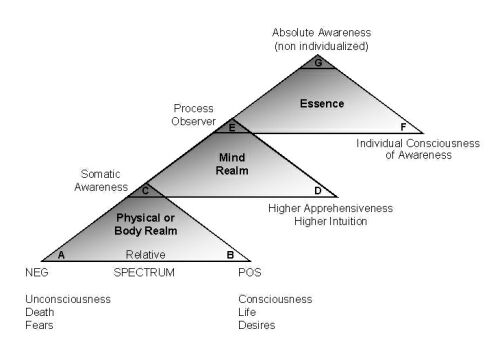
Jacob’s Ladder © 2001 Richard Rose. See this transcript of a talk on the topic by Rose.


Homing Ground Update
… A spot on earth where people can do retreats and hold
meetings; where the emphasis is on friendship and the search.
January 2024:
As we start the new year, December donations brought us to just over 20% of our 2023 fundraising goal of $15,750. The bulk of that total came from monthly, recurring donations. A big thank you goes to those core supporters who are there for TAT month in and month out, as well as all of you who choose monthly supporting memberships in TAT. These steady commitments are greatly appreciated and very helpful for TAT’s long-term planning.
An additional $152 came from Amazon purchases in 2024. This is a simple, no-cost way to support TAT but does require remembering to visit the TAT website first and use the Amazon link on this page before you put items in your cart: https://tatfoundation.org/support-tat/. Almost any product is eligible. For example, someone purchased toothpaste on Amazon, and TAT received $0.25 on that purchase.
In 2024, expect to see less frequent, but more effective, reminders of fundraising goals. I think these monthly reminders are a bit like that inspiring quote you put on the refrigerator—it works for a few days and then you don’t notice it anymore.
Thanks to all of you for making TAT the extraordinary organization it is, and best wishes for the new year.
Sincerely,
Shawn NevinsPS: Monthly contributions are a great way to support the TAT Center if making a larger one-time donation seems too much. If you’re so inspired, click the Donate button below, then check the box for “Make this a monthly donation” as in the example below:


Let’s bring this to life! “The job is upon us,” Richard Rose said, “and it is worthwhile.” To contribute to the TAT Center, mail a check made out to the TAT Foundation to:
TAT Foundation
PO Box 3402
Roxboro, NC 27573Big checks, little checks, all are welcome. Or use the PayPal link above (though we lose 2.2% of your donation to PayPal fees).
* See photos and more on the Homing Ground page. *
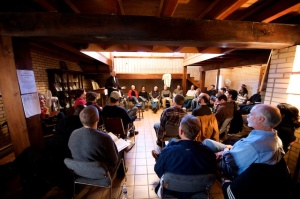
Did you enjoy the Forum? Then buy the book!
Readers’ favorite selections from seven years of issues.
Beyond Mind, Beyond Death is available at Amazon.com.
Home | Richard Rose | Books & Recordings | TAT Forum | About | Search | Site Map




 TAT Press publishes Mike’s
TAT Press publishes Mike’s 










 A member of the NYC Self-Inquiry group has started a blog. The goal is to interview people about their beliefs about life, what they’ve learned, what they want to share, and what they think might be useful to others. Available at:
A member of the NYC Self-Inquiry group has started a blog. The goal is to interview people about their beliefs about life, what they’ve learned, what they want to share, and what they think might be useful to others. Available at: 




